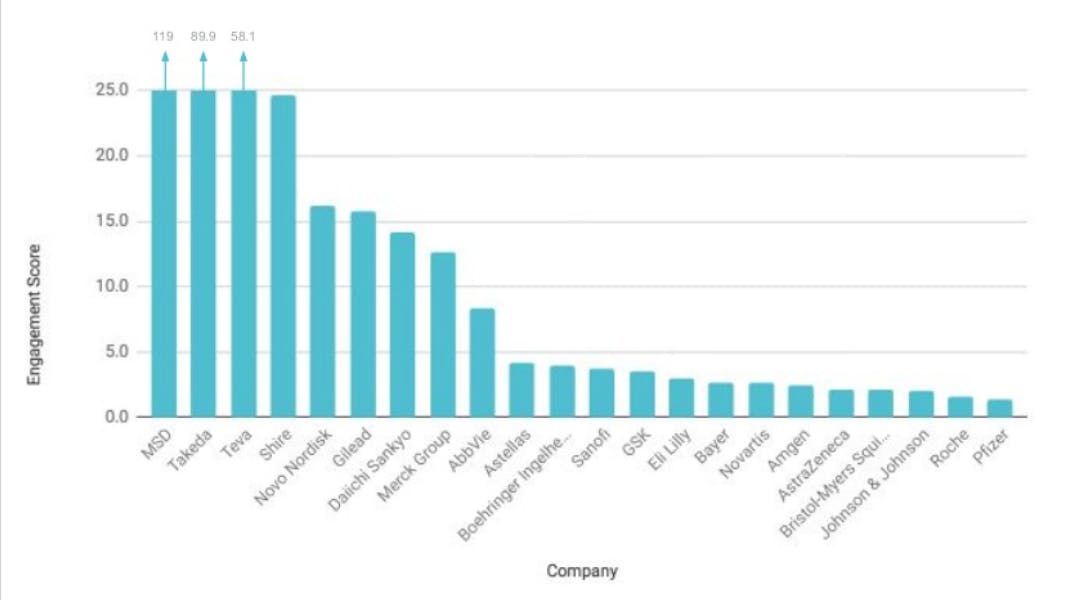Of course, being present in social channels doesn’t mean that a company is using them to good effect. So which pharma companies are winning social?
Recently, healthcare marketing agency Owen Health released its first-ever Pharma Social Media Ranking, which looked specifically at how the 22 largest pharma companies are using Twitter. To develop its ranking, the agency evaluated a number of data points related to their Twitter accounts, including authority, reach, activity, engagement and influence, during the month of October 2017.
In the end, it declared that GlaxoSmithKline (GsK) and Bayer tied for the overall top spot, followed by AstraZenica and Roche followed by Novartis.
Interestingly, GsK was the first pharma company among those considered to join Twitter. While Owen Health notes that most pharma companies set up a Twitter account around 8.5 years ago, GsK was a pioneer, having joined the then-nascent social platform more than a decade ago.
So what sets high-rankers like GsK and Bayer apart from lower rankers?
It’s not all about audience size. Top-ranked GsK and Bayer had the fifth and sixth most followers, respectively. As Owen Health noted, “Although more followers provides the opportunity for greater organic reach, it appears to become harder to keep this larger community engaged with valuable timely content.”
But it’s not all about engagement either. In fact, neither GsK nor Bayer ranked in the top 10 for engagement. Interestingly, the companies that got the highest marks for engagement – MSD, Takeda and Teva – ranked 19, 20 and 22 overall. That might have been due to the fact that Takeda and MSD were responsible for two of the three tweets with the most likes, retweets and comments during Owen Health’s evaluation period.

where GsK and Bayer shine is in the influence category, which was based on Klout scores. There, they tied with Pfizer for the top spot.
The importance of strategy
Of course, any ranking is subject to debate. The Klout scores Owen Health used, for instance, have been the subject of controversy. But the notion that winning at social media is not all about getting lots of followers, posting a lot of content, or even generating significant engagement, isn’t an illogical one.
At the end of the day, pharma companies need to connect and engage the right people. And that is a very different and more strategic exercise than trying to build a large following and pumping out lots of content that might or might not be relevant to key segments.
Perhaps reflecting the fact that pharma companies get this, Owen Health notes that it has observed them becoming part of relevant communities as opposed to trying to acquire as many followers as possible. “This approach is more strategic, plays to the social platforms strengths and has the potential to be more beneficial to corporate reputation and brand positioning in the long term.”
As pharma companies grow their social investments, expect to see the gap widen between those that embrace smart, targeted strategies and those that don’t.
Further reading:

Comments